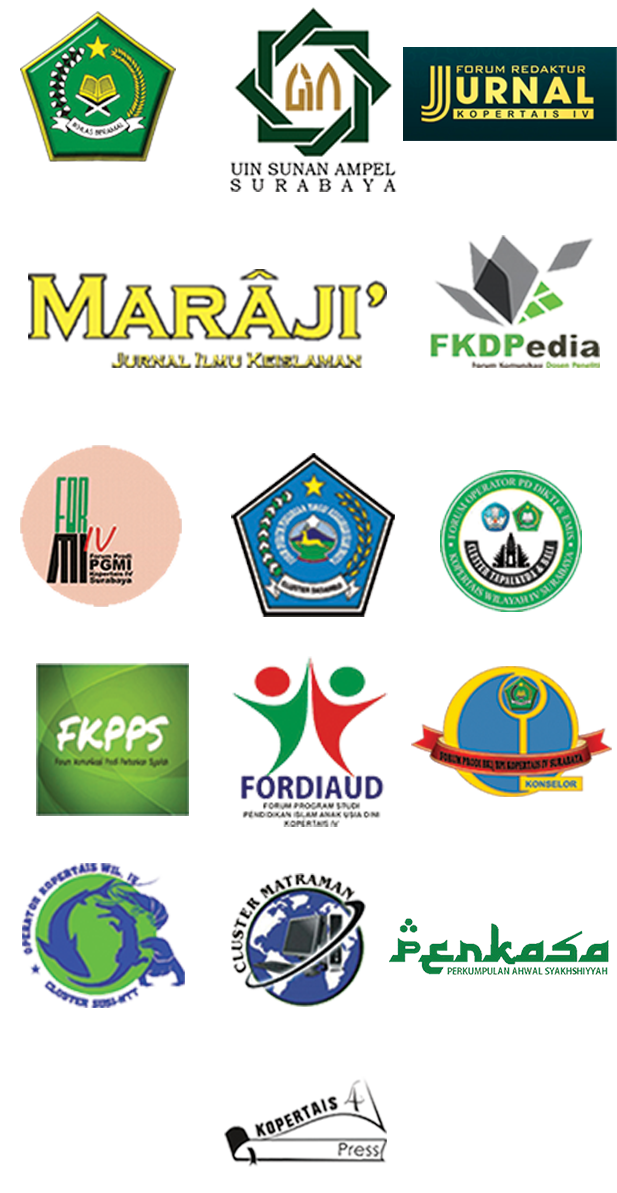Shariah Fundamentalisme: antara Narsisisme dan Komoditas Kekerasan
Abstract
Fundamentalism Shari’ah or violence on the name of religion at this current, seem to still continue to do the whole group of Indonesian society or another. Even in some cases there are a strong shades to perpetuate such desecration. Exclusive religiousness with truth claims unilaterally still to show existence strong enough among religious groups, Muslims especially. They consider their religious understanding that they follow is a truth that is undeniable, and is considered a definite reflection from the source of religious teaching (narsisism). It is thus delivering religious communities to life of conflict vulnerable among humans, fellow adherents of religious different streams, and fellow people of different religion. in addition, understanding this model that will make the people of religion into understanding extreme religious. Religion understood as dogmas die and just take care of the afterlife and the divinity that does not have the ability to provide solutions that delight in solving problems of humanity manifested in contemporary life. This article tries to analyze the problems above by using the approach of phenomenology in sociology so that the readers able to see these problems with an objective view without losing common sense.
Downloads
References
A’la, Abd., Melampaui Dialog Agama, (Jakarta: Penerbit Buku Kompas, 2002)
________., “Islam sebagai Faith In Action: Menguak Liberalisme Teologi Fazlur Rahman”, Akademika , Vol.16, No.2 (Maret, 2005)
________, “Otoritas Kebenaran Dalam Teologi Islam: Mengkritisi Teologi Islam dan Urgensi Pengembangan Teologi Kritis”,, Akademika, Vol.9, No.1 (September, 2001)
Abd. Hakim, Atang, dan Mubarok, Jaih, Metodologi Studi Islam, (Bandung: Remaja Rosdakarya, 2012)
Ali, Zainuddin, Metode Penelitian Hukum, (Jakarta: Sinar Grafika, 2010)
AS Hikam, Muhammad, Demokrasi Dan Civil Society, (Jakarta: LP3ES, 1999)
Asror, Ahidul, “Rekontruksi Keberagamaan Santri Jawa”, Islamica, Vol.7, No.1 (September, 2012)
Ashofa, Burhan, Metode Penelitian Hukum (Jakarta: Rineka Cipta, 1998)
Affendi,(El) Abdelwahab, Masyarakat Tak Bernegara: Kritik Teori Politik Islam, (Yogyakarta: Lkis, 2012)
Alamsyah, “Memangkas Rantai Kekerasan Atas Nama Agama”, dalam http://sinarharapan.co/index.php/news/read/16431/memangkas-rantai-kekerasan-atas-nama-agama-.html
Budiardjo, Miriam, Dasar-Dasar Ilmu Politik, (Jakarta: Gramedia Pustaka Utama, 2010)
Baihaqi,(al) al-Sunan al- Ṣaghir li al-Baihaqi, Al-Maktabah al-Shamilah (CD-Rom: Al-Maktabah Al-Syamilah, Digital, tt.)
Choueiri, Youssef M., Islam Garis Keras: Melacak Akar Gerakan Fundamentalisme, (Yogjakarta: Qonun, 2003)
Departemen Agama, Al-Qur’an al-Karim dan Terjemahnya RI, (Kudus: Menara Kudus 1427 H)
Ernst, Carl W., dan Richard C. Martin (ed), Rethingking Islamic Studies: From Orientalism to Cosmopolitanism, (Columbia: University of South Carolina Press, 2010 )
Ghazali,(al) al-Mustaṣfa min Ilmi al-Uṣūl,(Beirut-Lebanon: Dar al-Kutub al-Ilmiah,2010)
Kamil, Sukron, Pemikiran Politik Islam Tematik, (Jakarta: Kencana, 2013)
Muhammad ‘Ubbadi al-Lahji, Abdullah bin Sai’d, Iḍāh al-Qawāid al-Fiqhiyah (Surabaya: al-Hidayah,tt.)
Mushtafa al-Maraghi, Ahmad, Tafsīr al-Marāghi, (Beirut: Maktabah wa Mathba’ah Mustafa al-Bani,1996)
Muhammad, Husein, Telaah Atas RUU KUHP Tentang Penodaan Agama”, dalam http://www.komnasperempuan.or.id/2013/05/telaah-atas-ruu-kuhp-tentang-penodaan-agama/
Nasir, Muhammad, Metode Penelitian (Jakarta: Ghalia Indonesia, 1985)
Qodir, Zuly, Syariah Demokratik, (Yogjakarta: Pustaka Pelajar, 2004)
Raisuni,(al) Ahmad, Naẓariah al-Maqāṣid ‘inda al-Imām al-Shāṭibi, (Beirut: Dar al-Kutub al-‘Alamiah li al-Kitab al-Islami,1992)
Rosyadi, Imron, Islam dan Perdamaian “melacak akar-akar kekerasan dalam agama” Kharisma, (September, 2006)
Ramadan, Tariq, In The Footsteps Of The Prophet: Lessons From The Life Of Muhammad, (New York: Oxford University Press, 2007)
Rahman, Fazlur, Islam and Modernity: Transformation of an Intellectual Tradition, (Chichago dan London: The University of Chichago Press, 1982)
Satori, Djam’an dan Aan Komariyah, Metodologi Penelitian Kualitatif (Bandung: Alfabeta, 2009)
Setowara, Subhan, dan Soimin, Agama dan Poilitik Moral, (Yogjakarta: Intrans Publishing,2013)
Suyuthi,(al), al-Ashbah wa al-naẓāir,(Beirut-Lebanon: Dar al-Kutub al-Ilmiah, 2001)
Syaiful, Arif Humanisme Gus Dur, (Ar-Ruzz Media: Yogjakarta, 2013)
Syu’aibi, Ali, Meluruskan Radikalisme Islam, (Jakarta: Pustaka Azhary, 2004)
Triwulan Tutik, Titik, Kontruksi Hukum Tata Negara Indonesia Pasca Amandemen UUD 1945, (Jakarta: Kencana, 2011)
Wahyudi, Chafid, NU & Civil Religion: Melacak Akar Civil Religion Dalam Keagamaan NU, (Yogjakarta: Graha Ilmu, 2013)
Zakariyah al-Anshari, Yahya, Ghāyah al-Wusūl, (Surabaya: al-Hidayah, tt)
Zuhaily, Wahbah, (al), Naẓariyah al- Ḍarūrah al-Shar’iyah, (Beirut: Muasasah al-Risalah, tt)









